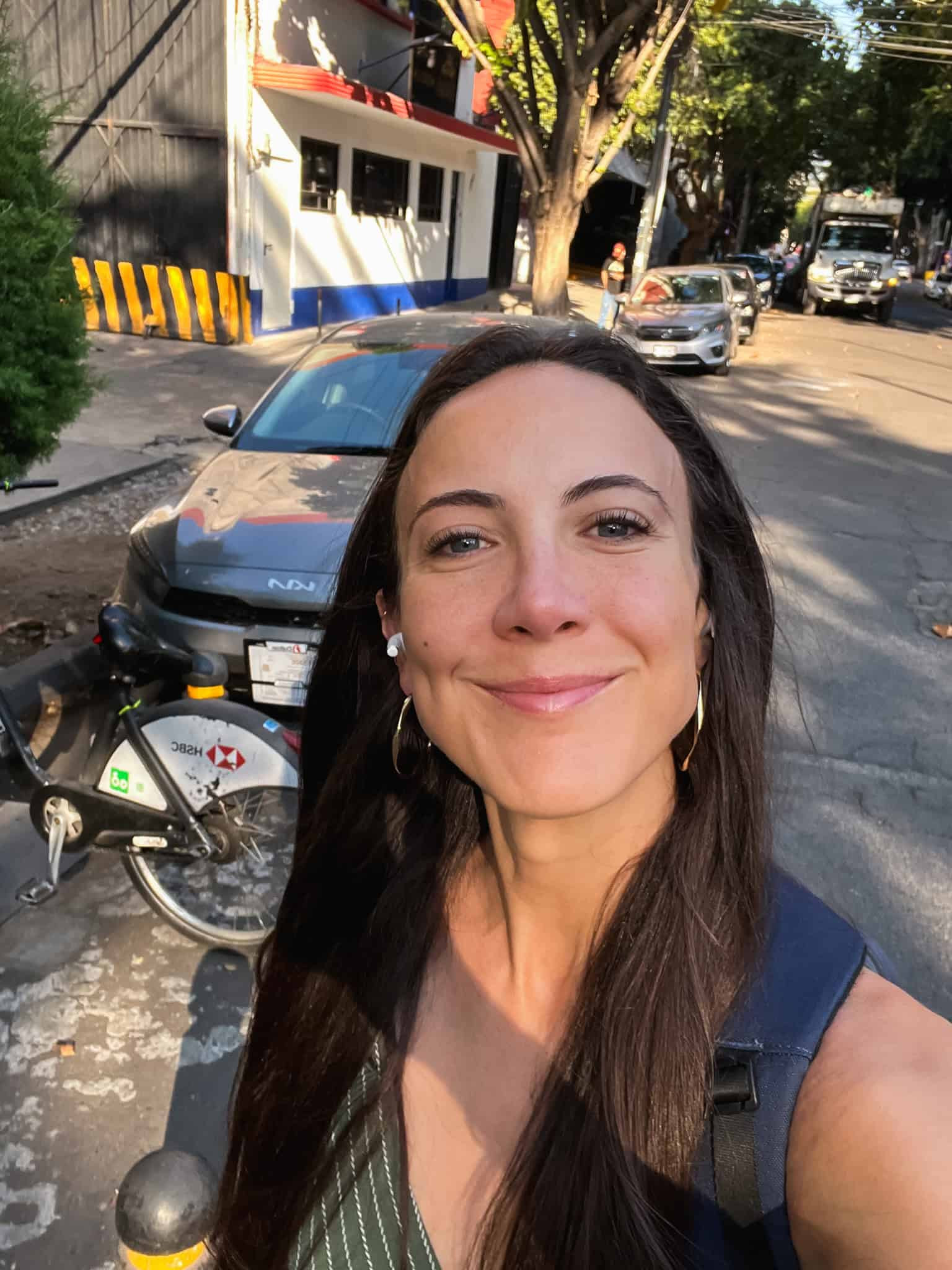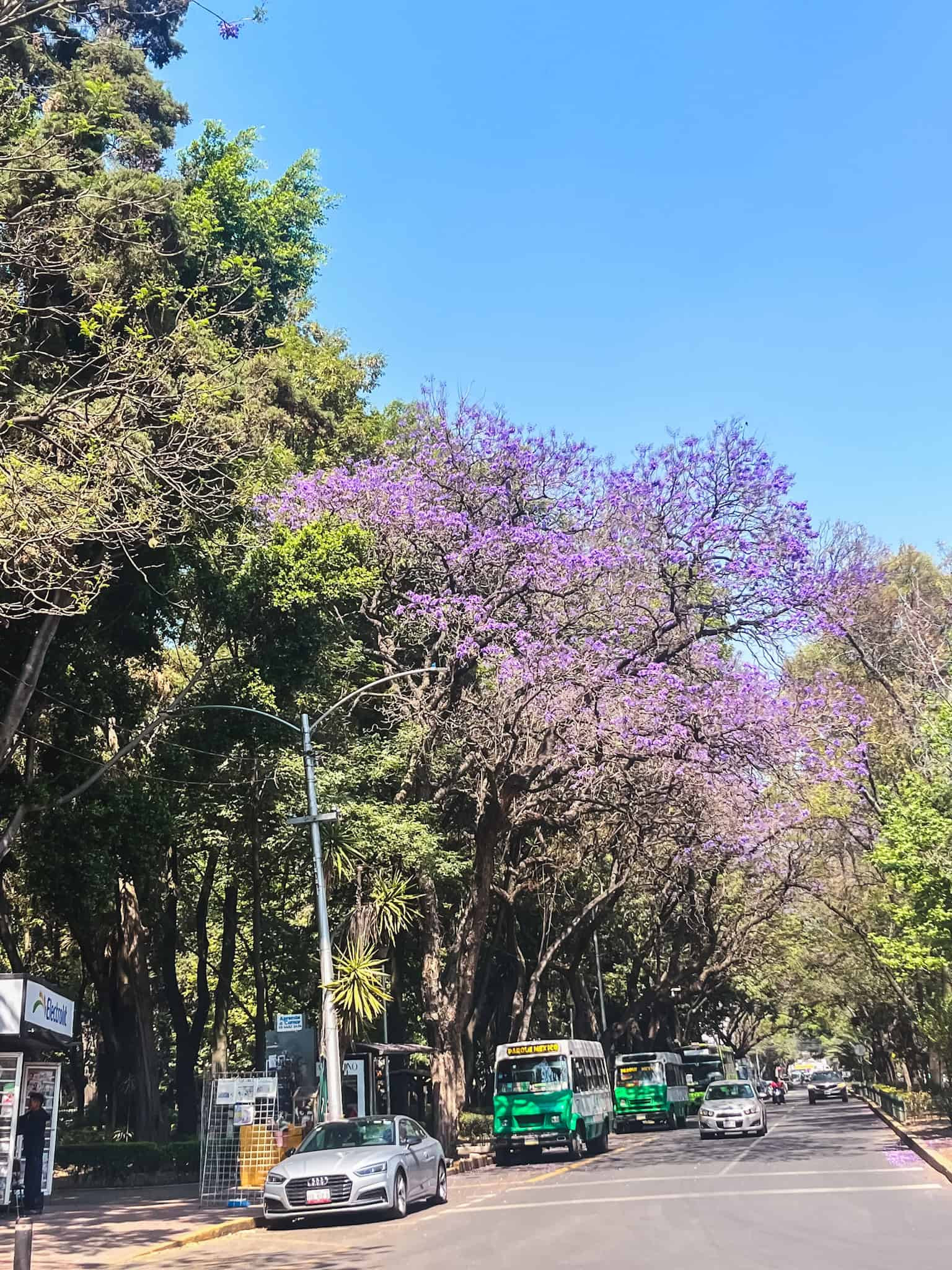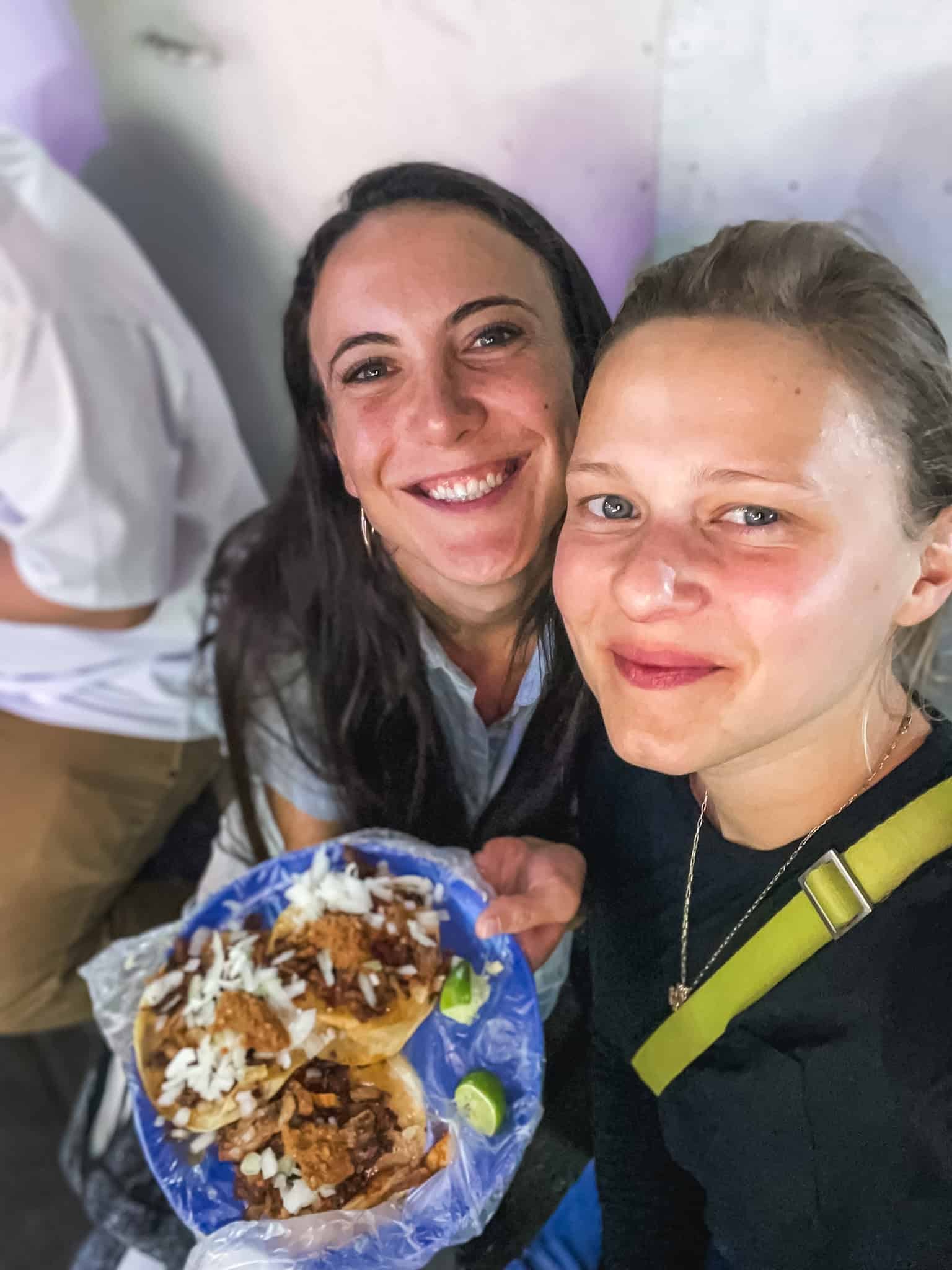Is Mexico City safe? Absolutely, especially for LGBTQ+ travelers armed with the right knowledge and resources! At gaymexico.net, we’re dedicated to providing the LGBTQ+ community with up-to-date information and resources to ensure a safe, welcoming, and unforgettable experience in Mexico City. Discover how to navigate the city with confidence, explore its vibrant culture, and connect with a supportive community. Uncover safe neighborhoods, safety tips, LGBTQ+ tourism, and travel advice.
1. Is Mexico City Safe for Tourists and LGBTQ+ Individuals?
Yes, Mexico City is generally safe for tourists, including LGBTQ+ individuals. Like any major city, it requires common sense and awareness of your surroundings. Mexico City boasts a vibrant LGBTQ+ scene, particularly in neighborhoods like Roma Norte and Condesa, where you’ll find numerous gay-friendly establishments and a welcoming atmosphere.
Mexico City is a massive metropolis with over 22 million people, offering world-class art, food, nightlife, and history. The city is generally safe for most travelers. Many tourists and locals are out and about. You’ll see parents pushing strollers, joggers with headphones, and locals on their lunch break. Also, digital nomads and expats communities make Mexico City feel safe. Many travelers stay for weeks or months because they feel comfortable, connected, and safe. Furthermore, there is a visible police presence, especially in tourist areas like Roma, Condesa, Polanco, and Centro Histórico. Municipal and even tourist police patrol regularly, as tourism is an important part of the local economy.
 woman with brown hair smiling at camera for is it safe in Mexico City
woman with brown hair smiling at camera for is it safe in Mexico City
Feeling very safe walking around Mexico City all by myself.
However, it’s crucial to stay informed about potential safety concerns and take necessary precautions. LGBTQ+ travelers should be aware of local laws and customs, although Mexico City is generally progressive and accepting.
2. Understanding Safety Ratings and Travel Advisories
The U.S. State Department currently rates Mexico City as “Exercise Increased Caution,” similar to London and Paris. This rating is primarily due to petty crime, such as pickpocketing and tourist scams, particularly in crowded areas like Centro Histórico and major markets.
To mitigate these risks, consider the following precautions:
- Use ride-sharing services like Uber at night, especially when venturing outside well-known neighborhoods.
- Carry a crossbody bag with a zipper and wear it in front in crowded areas.
- Keep your phone and wallet in your front pocket.
- Avoid wearing flashy jewelry or watches.
- Trust your instincts and leave any area that feels unsafe.
3. Which are the Safest Neighborhoods in Mexico City for LGBTQ+ Travelers?
Choosing the right neighborhood can significantly impact your safety and overall experience in Mexico City. The safest and most welcoming neighborhoods for LGBTQ+ travelers include:
- Roma Norte: Known as the “Brooklyn of Mexico,” Roma Norte features tree-lined streets, craft coffee shops, cocktail bars, and some of the city’s best restaurants and bars. It’s highly walkable and attracts travelers, artists, and young professionals.
- Walkability: 10/10
- Safety: Excellent day or night
- Vibe: Cool, hip, international
- Recommended Hotel: Maison Du Comte – This renovated mansion is perfect for travelers seeking a cozy stay in a prime location.
- Condesa: Bordering Roma Norte, Condesa offers a calmer atmosphere with beautiful homes, lush greenery, and the stunning Parque Mexico at its center. It’s ideal for long morning walks and casual dining.
- Walkability: 10/10
- Safety: Great, especially near the park
- Vibe: Chill, upscale residential
- Recommended Hotel: Andaz Mexico City Condesa – A centrally located hotel with a pool, part of the Hyatt family.
 purple Jacaranda trees in Roma Condesa neighborhoods which are very safe in mexico city
purple Jacaranda trees in Roma Condesa neighborhoods which are very safe in mexico city
Blooming Jacaranda trees near Parque Mexico in Condesa.
- Polanco: The “Beverly Hills of CDMX,” Polanco boasts upscale hotels, luxury shopping, fine dining, and embassies. It’s more corporate and less artsy than Roma/Condesa but extremely safe.
- Walkability: 8/10
- Safety: Very high, especially near Masaryk Ave
- Vibe: Bougie, modern, polished
- Recommended Hotel: JW Marriott Mexico City – A polished five-star experience where you can earn Marriott Bonvoy points.
4. Areas to Avoid in Mexico City and Safety Precautions
While Mexico City is generally safe, some areas have higher crime rates. It’s best to avoid Iztapalapa, Tepito, and Doctores unless you’re traveling with a local who knows the area well. Even in Centro Histórico, be cautious after dark and keep a close eye on your belongings, as pickpocketing is more common there. Avoid walking home late at night if you’re intoxicated, as you could be targeted by corrupt police officers or pickpockets. Uber is an affordable and reliable alternative in such situations.
5. Is Street Food Safe to Eat in Mexico City?
Food is a highlight of Mexico City, with countless trendy restaurants and incredible taco stands. Street food is generally safe if it’s cooked over high heat (like suadero tacos) or has a skin (like a lime). Avoid fresh ingredients like cilantro, as the water in Mexico City is not potable and may carry risks. Taking a street food tour can be a great way to discover the best local spots and learn how to navigate the street food scene safely.
 two young women eating three street food tacos for is it safe in mexico city
two young women eating three street food tacos for is it safe in mexico city
I am always game for street food tacos (without cilantro).
If you plan to cook at home, use Bacdyn or Microdyn drops to disinfect raw fruits and vegetables. Submerge your produce in water, add about 10 drops, wait 15 minutes, and it will be safe to eat. These drops are available in any supermarket.
6. Water Safety in Mexico City: What LGBTQ+ Travelers Need to Know
Tap water in Mexico City is not potable and should be avoided. Always drink filtered water, available in bottles at hotels, Airbnbs, 7-Elevens, and Oxxo stores. When eating street food or at a dive bar, purchase bottled water. In nicer restaurants, you can order “agua filtrada” (filtered water). Restaurants will not serve tap water, so any water brought to your table will be filtered or bottled.
7. LGBTQ+ Safety Resources and Support in Mexico City
Mexico City has a thriving LGBTQ+ community and offers various resources for support and information. Some organizations and resources to consider include:
- All Access Mexico: Provides custom-designed itineraries with LGBTQ+ guides. (Address: 3255 Wilshire Blvd, Los Angeles, CA 90010, United States. Phone: +1 (213) 380-2177. Website: gaymexico.net)
- COPRED (Consejo para Prevenir y Eliminar la Discriminación de la Ciudad de México): Mexico City’s Council to Prevent and Eliminate Discrimination offers legal advice and support for victims of discrimination.
- ILGA (International Lesbian, Gay, Bisexual, Trans and Intersex Association): Provides resources and information on LGBTQ+ rights in Mexico.
These resources can provide assistance and guidance if you experience any discrimination or safety concerns during your visit.
8. Cultural Sensitivity and LGBTQ+ Etiquette in Mexico City
While Mexico City is generally progressive, it’s essential to be mindful of cultural nuances. Public displays of affection are becoming more common in progressive areas like Roma and Condesa. It is crucial to respect local customs and traditions to ensure a positive experience.
9. Connecting with the LGBTQ+ Community in Mexico City
Mexico City offers numerous opportunities to connect with the local LGBTQ+ community:
- Gay bars and clubs: Explore the vibrant nightlife in Roma Norte and Zona Rosa.
- LGBTQ+ events and festivals: Attend events like Pride celebrations and film festivals.
- Online communities: Join online forums and social media groups to connect with locals and other travelers.
These connections can enhance your experience and provide valuable insights into the city’s LGBTQ+ culture.
10. Safety Tips for Solo LGBTQ+ Travelers in Mexico City
Traveling solo as an LGBTQ+ individual can be an empowering experience. To ensure your safety and well-being, consider the following tips:
- Share your itinerary with a friend or family member.
- Stay in well-lit and populated areas.
- Use ride-sharing services like Uber for transportation, especially at night.
- Trust your instincts and avoid situations that make you feel uncomfortable.
- Learn a few basic Spanish phrases to communicate effectively.
11. The Legal Landscape for LGBTQ+ Individuals in Mexico City
Mexico City has made significant strides in LGBTQ+ rights. Same-sex marriage has been legal in Mexico City since 2010. Adoption by same-sex couples is also legal. Discrimination based on sexual orientation and gender identity is illegal in Mexico City.
| Legal Right | Status in Mexico City |
|---|---|
| Same-Sex Marriage | Legal since 2010 |
| Adoption by Same-Sex Couples | Legal |
| Anti-Discrimination Laws | Yes |
These legal protections contribute to a safer and more welcoming environment for LGBTQ+ individuals.
12. Personal Safety Devices and Apps for LGBTQ+ Travelers
Consider carrying personal safety devices and utilizing safety apps to enhance your security. Some options include:
- Personal alarms: Carry a small personal alarm that emits a loud sound to deter potential attackers.
- Whistles: A whistle can attract attention if you feel threatened or need assistance.
- Safety apps: Download apps like Noonlight or Citizen, which allow you to alert emergency contacts or authorities if you’re in danger.
These tools can provide an extra layer of security and peace of mind during your travels.
13. How to Handle Harassment or Discrimination in Mexico City
If you experience harassment or discrimination in Mexico City, it’s essential to know how to respond:
- Stay calm: Try to remain calm and assess the situation.
- Document the incident: If possible, record details about the incident, including the date, time, location, and description of the individuals involved.
- Report the incident: Report the incident to local authorities or LGBTQ+ organizations like COPRED.
- Seek support: Reach out to friends, family, or LGBTQ+ support groups for emotional support and guidance.
14. Travel Insurance Options for LGBTQ+ Travelers Visiting Mexico City
Travel insurance is essential for any trip, but it’s especially important for LGBTQ+ travelers who may have unique concerns. Look for travel insurance policies that cover:
- Medical expenses: Ensure the policy covers medical treatment in case of illness or injury.
- Trip cancellation: Choose a policy that allows you to cancel your trip for covered reasons, such as illness or unforeseen circumstances.
- Lost or stolen belongings: Select a policy that covers the loss or theft of your personal belongings, including your phone, wallet, and passport.
- LGBTQ+-specific concerns: Some travel insurance providers offer policies that specifically address the needs of LGBTQ+ travelers, such as coverage for discrimination or harassment.
15. Budgeting Tips for a Safe and Enjoyable LGBTQ+ Trip to Mexico City
A safe and enjoyable trip to Mexico City doesn’t have to break the bank. Here are some budgeting tips to help you make the most of your trip:
- Travel during the off-season: Consider visiting Mexico City during the off-season (April-May or September-October) to save money on flights and accommodation.
- Stay in budget-friendly neighborhoods: Look for accommodation in neighborhoods like Roma Norte or Condesa, which offer a range of affordable options.
- Eat local: Sample the delicious and affordable street food and local restaurants.
- Use public transportation: Utilize the efficient and affordable Metro system to get around the city.
- Take advantage of free activities: Explore the city’s parks, museums, and cultural attractions, many of which offer free admission.
16. Essential Spanish Phrases for LGBTQ+ Travelers in Mexico City
Knowing a few basic Spanish phrases can greatly enhance your experience in Mexico City and help you navigate various situations. Here are some essential phrases to learn:
- “Hola” (Hello)
- “¿Cómo está?” (How are you?)
- “Bien, gracias” (I’m fine, thank you)
- “¿Dónde está…?” (Where is…?)
- “¿Cuánto cuesta?” (How much does it cost?)
- “Soy gay/lesbiana/bisexual/transgénero” (I am gay/lesbian/bisexual/transgender)
- “¿Es un lugar seguro para LGBTQ+?” (Is this a safe place for LGBTQ+ people?)
- “Necesito ayuda” (I need help)
17. Packing Essentials for a Safe and Comfortable Trip
Packing the right items can contribute to a safer and more comfortable trip to Mexico City:
- Comfortable walking shoes: You’ll be doing a lot of walking, so comfortable shoes are a must.
- Crossbody bag with zipper: To protect your belongings from pickpockets.
- Hand sanitizer: To maintain hygiene.
- Sunscreen: To protect your skin from the sun.
- Insect repellent: Especially if you plan to visit parks or outdoor areas.
- Medications: Bring any necessary medications, as well as a copy of your prescription.
- Adapters: If necessary, bring adapters for your electronic devices.
18. Staying Connected: Mobile Data and Wi-Fi in Mexico City
Staying connected is essential for accessing information, navigating the city, and communicating with loved ones. Here are some options for mobile data and Wi-Fi in Mexico City:
- Purchase a local SIM card: A local SIM card can provide you with affordable mobile data.
- Use international roaming: Check with your mobile provider about international roaming options.
- Take advantage of Wi-Fi hotspots: Many hotels, restaurants, and cafes offer free Wi-Fi.
19. Exploring Mexico City’s LGBTQ+ Nightlife Safely
Mexico City boasts a vibrant LGBTQ+ nightlife scene, particularly in Zona Rosa. To explore the nightlife safely, consider these tips:
- Go with friends or in a group.
- Stay aware of your surroundings.
- Don’t leave your drinks unattended.
- Use ride-sharing services like Uber for transportation.
- Avoid walking alone late at night.
20. Making the Most of Your LGBTQ+ Trip to Mexico City with Gaymexico.net
Mexico City offers a wealth of cultural, historical, and culinary experiences for LGBTQ+ travelers. By staying informed, taking necessary precautions, and connecting with the local community, you can ensure a safe, welcoming, and unforgettable trip. For more in-depth information, resources, and community connections, visit gaymexico.net and start planning your adventure today.
Whether you’re seeking the best gay bars, LGBTQ-friendly hotels, or tips for navigating the city, gaymexico.net is your ultimate resource for experiencing Mexico City to the fullest as a proud member of the LGBTQ+ community.
Visiting Mexico City can be incredibly rewarding. Prioritizing safety and knowing where to find community resources can ease anxieties and make room for an unforgettable experience.